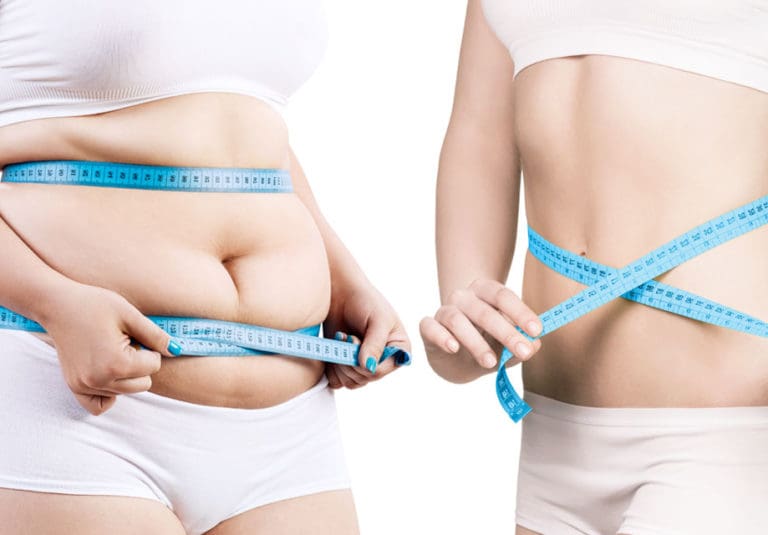
It’s a common perception that eating less and exercising more will lead to weight loss. However, scientific research has shown that this is not always the case.
There are many factors to consider when losing weight, especially for those who find that the most obvious answers don’t seem to have any effect.
Those who are concerned with losing weight will often weigh themselves regularly, only to find the number on the scales fluctuates. This can be disheartening, causing people to ‘give up’, but in many cases it’s just a case of knowing what is the right thing to do.
A common issue for those who gain weight easily, is finding the balance between how much energy is consumed versus how much is expelled or used up by the body. Although it can take some effort, getting it right can have the desired effect, and there are many professionals out there who are willing to help people who are struggling – including the team at Face Medical. So let’s explore this concept by looking at the factors involved.
Calories
Everything we eat has a calorific value which determines how much energy can be found in the food source, and may come from a combination of sugars, carbohydrates and fats.
There is a specific amount of calories that each person needs on a daily basis to help the body function normally. Although we are often led to believe that women need around 2000 calories a day and men need around 2500, this is just a generalisation. How many calories one actually needs usually depends on the person; their daily activity levels, height and metabolic rate. Many people are surprised to find they require less than the recommended 2000 / 2500 calories per day, and can also be surprised by the amount of calories they actually consume if they are able to calculate this more accurately.
A person’s recommended calorie intake is based on them being at their ‘ideal weight’, and will help in maintaining this, combined with eating the right levels of sugar, fat and salt. However, for those who are overweight, this number may need to be decreased by around 500 calories per day in order to achieve weight loss.
One thing that many people on a diet don’t account for is eating too few calories. If the body doesn’t get enough energy, the metabolism changes (and this can happen in as little time as 24 hours) and becomes slower. This reaction by the body is to help safeguard the fat stores it already has in an attempt not to run out of energy. Changes in the metabolism are common for those who diet, and yo-yo diet, as the body tries to keep up with the changes to food and calorie intake.
Exercise
Exercise doesn’t have to mean high impact, cardio workouts, every day. Exercise is more concerned with moving the body regularly at a rate that doesn’t cause damage to the joints and muscles. Of course, some people are more athletic than others, and the body has the ability to increase its levels of fitness and tolerance to more strenuous forms of exercise.
To be able to exercise effectively the body needs energy, which comes from the foods and calories we consume. It can also be a great way to use up any excess energy that is, or may become stored in the body, usually as fat. Fat loss from exercise needs to work hand in hand with calorie consumption, causing the deficit required without depriving the body of the calories it needs. Exercise is a way of working the body, so when we consider it as a way to burn calories we need to ensure it is increasing the heart rate – which is when a person might start to feel ‘a little ‘puffed out’.
Genetics
Genetics are well-known to influence the size and shape of a person’s body. DNA is passed on at random through the biological parents, which collectively make up a person’s individual genes. It is the genes that instruct the body to make cells and proteins which will eventually determine the appearance of each individual characteristic.
When genes are thought to contribute to the likelihood of a person gaining weight easily, it is their influence over metabolic rate, food-cravings, satiety (feeling full), the distribution of body fat and appetite that is involved. Research has also shown that genes can determine how sedentary a person is, their drive for overeating, and whether behaviours involving food are triggered by their environment and emotions / stress. Medical professionals are increasingly exploring the link between DNA and weight gain and are even using DNA testing as a way of identifying the possible genetic reasons behind weight gain to help with effective weight loss.
At Face Medical we know that a person needs to be treated individually when finding the right method of weight loss for them. Our expert team can provide a wealth of support to those who find maintaining their desired figure a difficult task. With our assistance we can help a person to get the right balance between calorie intake and exercise, encouraging realistic, long-term healthier lifestyle choices.
We understand that perseverance, patience and consistency are often the key to sustainable weight loss, and we also have a range of treatments to assist the individual’s weight loss journey. Losing weight and becoming fitter are common aspirations at the turn of a new year, and Face Medical are waiting to take enquiries form anyone who wishes for a slimmer body profile in 2023.
